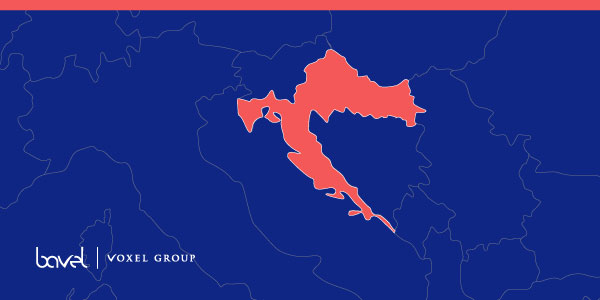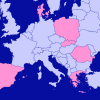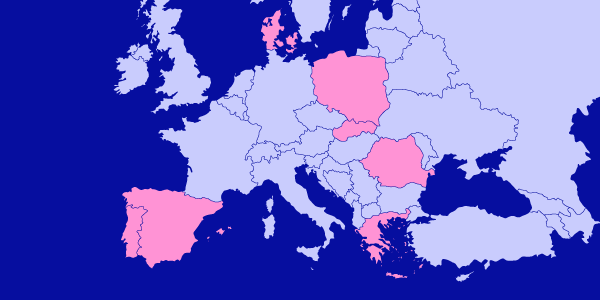As of July 1, 2019, electronic invoicing will be mandatory in Croatia in the B2G (Business to Government) environment. This new regulation implies that all companies that have a contractual relationship with the Croatian public administration, which includes associations and companies that receive public benefits, will have to electronically issue their invoices to the government.
With this measure, the government aims to continue to digitally transform the administration, increase transparency and become more efficient. According to official data, the government expects to save between 6% and 13% of the revenue, in other words, 2 billion Croatian Kuna equivalent to more than 270 million euros.
Croatia joins the European trend in the use of electronic invoices that was officially generalized on April 18 with the European Directive 2014/55 / EU. This Directive states that all central government bodies of European Union member states must be ready to receive and process electronic invoices with the European format EN16931. And despite the fact that Croatia was one of the first countries to transpose this directive (on December 1st, 2018), it will not be until July 1st that will join other European countries (Spain, France, Germany, Belgium, Greece, Austria…) and establish the obligatory of B2G electronic invoicing.
Even though this Directive does not impose any obligations for the B2B, it is a great opportunity to start issuing e-invoices to all government bodies in Europe and adapt, as well, their Administrative systems. “The normalization of the use of electronic invoicing is closer than we imagine. Now it’s the turn of public administrations, but there are already many private companies that have had a robust electronic invoicing system in place for years,” explains Àngel Garrido, CEO of Voxel Group
The electronic invoicing in the travel sector
If there is one sector where electronic transactions are on the rise, it is tourism. The travel sector is highly transactional, which means that by the nature of its business it generates millions of invoices and transactions every year. Historically, processing all these invoices manually has been a source of great inefficiency for tourism companies.
According to figures provided by baVel, an international hotel chain can process between 3 to 6 million invoices a year, while a travel agency or a tour operator can deal with over a million invoices each year; and an international bedbank can process over 10 million invoices a year.
“In recent years, Croatia has positioned itself as an international tourist recipient. Only in 2017, it received more than 16.5 million international tourists”, explains Garrido. “It is time for Croatian travel companies to take advantage of this change and gain competitiveness and also digitize their back office processes.”
The digitalisation of the invoicing process has numerous benefits for companies: the automation of manual processes, fewer errors, increased productivity, better control of documentation, reduced use of paper, greater efficiency in billing, etc. The Voxel Group’s specialised electronic invoicing platform for the tourism sector, baVel, is specially designed for the work flows of the tourism industry and the HORECA sector, and brings additional benefits such as traceability, automatic reconciliation, compatibility with universal management systems and the possibility of completing the billing cycle by also automating B2B payments.
The panorama of electronic invoice in Europe
The growth of electronic invoicing in Europe is a fact. According to the European E-Invoicing Service Providers Association (EESPA), the use of electronic invoicing grew by 23% in 2017,
an increase of up to 1.9 billion e-invoices compared to 2016. In Italy it is already compulsory
to use both B2G and B2B electronic invoicing.
Considering the great importance that electronic invoice is taking in Croatia, and in Europe in general, and with the aim of providing all businesses with a tool to support the changing European legislative Framework on electronic invoices baVel, the electronic transaction platform from Voxel Group, leader in the tourism sector, has produced its “Panorama of the Electronic Invoice in Europe”, an interactive map detailing the state of legislation on electronic billing in each country. It also indicates when new laws come into force and is continually updateded with any new obligations concerning electronic invoices in each country. In some countries, baVel’s interactive map also includes a detailed guide to the requirements for using electronic invoices in each country.











